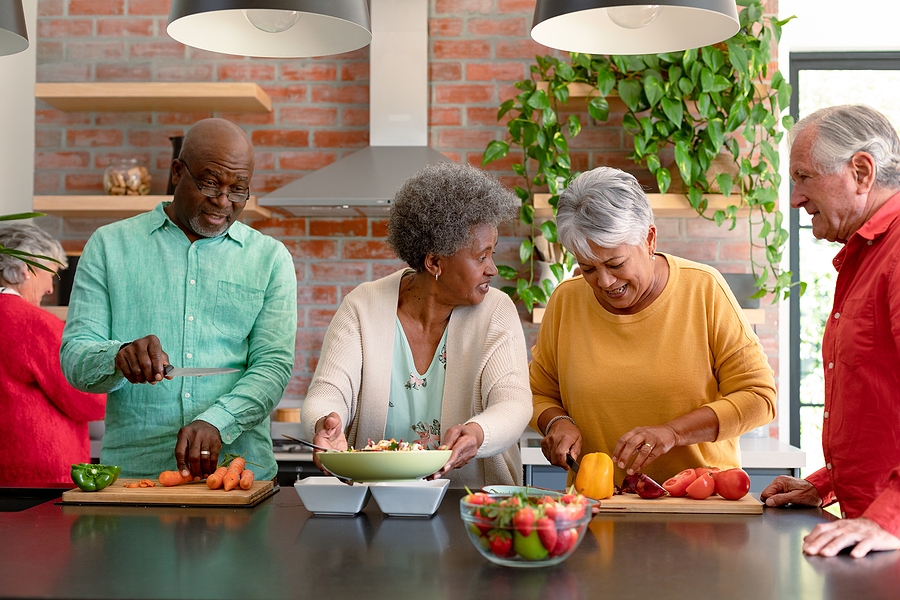
Did you know? You may be at higher risk for gallstones depending on your age, gender and other factors. Read on to learn more about gallstones, what to eat to prevent them and what to eat if you need your gallbladder removed.
What is the gallbladder and what are gallstones?
The gallbladder is an organ that stores bile. Bile helps you digest fat. Gallstones are hard pebbles that can form in the gallbladder when bile hardens.
Am I at risk for getting gallstones?
You may be at higher risk for gallstones if you:
-
Are a woman
-
Are over the age of 60
-
Take cholesterol medication
-
Are pregnant
-
Use hormone replacement therapy
-
Use birth control pills
-
Carry extra weight, especially if you are a woman
-
Have diabetes
-
Have lost weight very quickly
-
Fast (go without eating for long periods of time)
-
Indigenous
What are the symptoms of gallstones?
Many people with gallstones will not have any symptoms. These “silent” gallstones do not affect how the gallbladder works. However, if gallstones block the passage of bile through the gallbladder, the increased pressure will cause pain and discomfort in the abdomen area.
How are gallstones treated?
If you have gallstones and are not having pain, gallstones are usually left untreated. However, if you have pain, you will require treatment. The most common treatment for gallstones is surgery to remove the gallbladder. Because the gallbladder is not an essential organ, people can live normally without it.
How can I help prevent gallstones?
-
Eat less added sugar. Limit foods high in sugar like sweetened beverages, baked goods, desserts, chocolate and candy.
-
Eat plenty of vegetables and fruits. Try to make half your meals vegetables and fruits.
-
Choose high fibre foods like whole grains, vegetables, fruit and legumes (beans, peas and lentils). A high fibre diet may help prevent gallbladder disease.
-
Choose healthy fats. Healthy fats are called unsaturated fats and are found in foods like nuts, seeds, avocado, vegetable oils and fish. Eat less saturated and trans fat. Read more about the different types of fats here. Avoiding fat does not decrease the risk of gallstones.
-
Maintain a weight that is right for you. If you have questions about your weight, a dietitian can help you decide what is right for you and your lifestyle.
-
If you enjoy coffee or tea, have caffeine in moderation. This is about 3 cups of brewed coffee per day.
-
If you drink alcohol, follow the low risk drinking guidelines.
What do I eat if I need my gallbladder removed?
Before you have surgery:
Eat a nutritious diet by following Canada’s Food Guide unless your health care provider gives you other advice. There is no need to follow a low fat diet. Choose foods with healthy fats such as nuts and seeds, avocados, vegetable oils, etc.
After you have surgery:
Go back to your normal eating pattern unless your health care providers tells you otherwise. You do not need to restrict how much fat you eat – follow Canada’s Food Guide and include some foods with healthy fats daily. Read more about fats here.
How can a dietitian help?
A dietitian can help you make changes to your diet that support a healthy eating pattern and helps prevent gallstones. Based on your lifestyle, culture and preferences, they will give you advice on ways to increase fibre and reduce sugar. Connect with a dietitian today!
Bottom line
Following Canada’s Food Guide, including eating more fibre and less sugar, may help you prevent gallstones. You do not need to avoid fat or go on a low fat diet.
You may also be interested in:
What you need to know about kidney stones
What you need to know about ulcers
Cookspiration – Recipe and Meal Ideas by Dietitians of Canada
This article was written and reviewed by dietitians from Dietitians of Canada. The advice in this article is intended as general information and should not replace advice given by your dietitian or healthcare provider.
Last Update – March 1, 2023